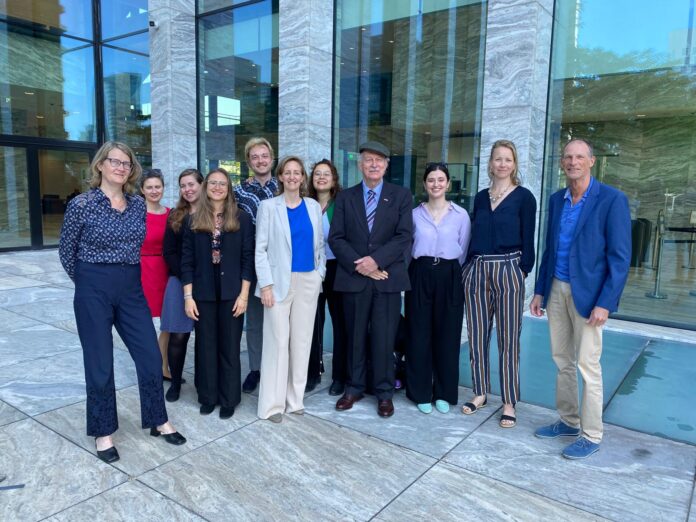“The value of a human life is infinite, but unfortunately our healthcare budget is not,” said former Dutch Health Minister Bruno Bruins, quoted by the lawyers of the Pharmaceutical Accountability Foundation (PAF) this morning, 14 May 2024, in the District Court of Amsterdam, the Netherlands. According to PAF, the pharmaceutical company AbbVie has strained the delicate balance that health systems must strike to give citizens the best possible care with limited resources. PAF is bringing a lawsuit against the company for pricing practices on its blockbuster drug adalimumab (Humira) that PAF says violated human rights law, competition law, and social duty of care (tort law) in AbbVie’s quest for ever-greater profits.
AbbVie made a staggering $208 billion on Humira globally between 2003-2022, selling the ‘Swiss army knife’ of medicines to treat rheumatoid arthritis, psoriasis, and eight other inflammatory conditions. In the Netherlands alone, they netted €2.37 billion, of which PAF says as much as €1.2 billion amounts to excess profits earned through unfair pricing practices (see infographic below). This amounts to €68 per Dutch citizen.
The impact of such high-priced medicines is felt in difficult decision-making: waiting lists, rationing of healthcare, and other trade-offs. While sometimes high prices reflect the cost of innovation, sometimes they simply reflect the use of a market monopoly to charge whatever the market will bear. The trouble is that medicines are unlike other products, and there is no natural limit on what the market will bear when the product in question is essential for the treatment of a disease.

Today is a procedural hearing. PAF launched its court case in February 2023; in November 2023, AbbVie responded to PAF’s lawsuit on process grounds, claiming it should be ruled inadmissible in Dutch courts. PAF disagrees; now the courts must hear both arguments and make a decision (expected in 6-12 weeks from today) on whether or not the case can proceed to its merits. It will be good if it does. If PAF can demonstrate in courts that AbbVie’s pricing practices are legally actionable, it will set an important example for other companies and signal that, while companies have the right to earn a profit, there are limits as to what is acceptable to a society when pharmaceutical pricing affects the health care system.
This is PAF’s second legal action – their first case concerned an enforcement request at the Authority for Consumers and Markets (ACM, the Dutch competition authority), concerning the company Leadiant in 2018. Leadiant in 2008, obtained the rights to a treatment for a rare genetic condition – Chenodeoxycholic acid (CDCA). CDCA had been used off-label and priced at €0,28 a capsule in 2008, but once Leadiant had the sole rights, it increased the price to €140 per capsule, making treatment cost €153,300 per patient per year. In 2021, the ACM fined Leadiant € 19,569,500 for abuse of a dominant market position to overcharge CDCA patients (the fine was adjusted to €17,044,000 in 2023 after an appeal by Leadiant). More information on the CDCA case is available here.
More information on the Humira case is available here.
(ML&P director Ellen ‘t Hoen is a member of the PAF Expert Advisory Board)
Kaitlin Mara, MSc, has been writing about international intellectual property and innovation policy for over 15 years.
